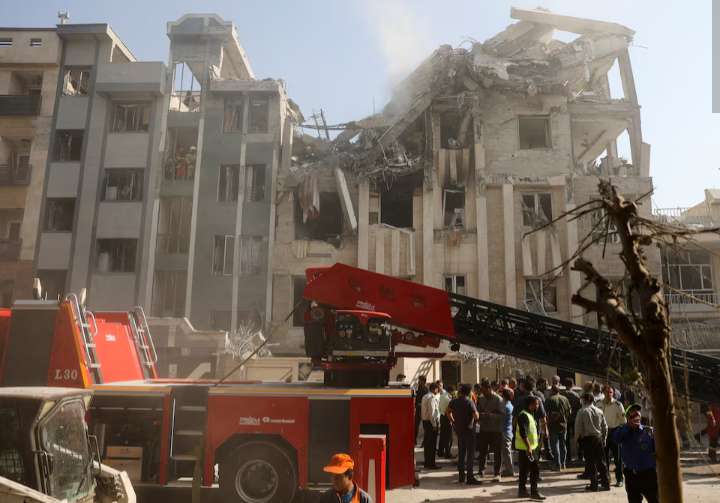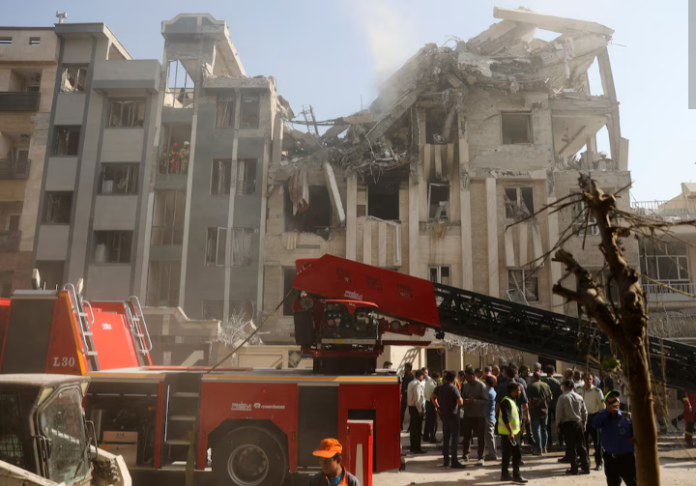Tensions in the Middle East have escalated dramatically after Israel launched a major military operation on Friday, striking Iranian nuclear and military facilities in a bold move aimed at halting Tehran’s nuclear ambitions.
According to Israeli officials, the strikes targeted key nuclear enrichment sites and missile factories, eliminating top military leaders and nuclear scientists. Over 100 sites were hit by more than 200 fighter jets in what may be a prolonged campaign. Among those killed were Iran’s armed forces chief of staff, Major General Mohammad Bagheri, and Revolutionary Guards commander Hossein Salami.
Though the United States publicly distanced itself from the operation, former President Donald Trump claimed Iran had invited the attack by ignoring his 60-day ultimatum to reach a nuclear deal. “They got hit as hard as anyone can be hit,” Trump said in an interview. “There’s more to come. A lot more.”
He posted on Truth Social shortly after the strike: “Today is day 61. Now they have, perhaps, a second chance!”
Iran vowed a decisive response. President Masoud Pezeshkian addressed the nation, urging unity and warning Israel would “regret this foolish act.” Iran’s Supreme Leader, Ayatollah Ali Khamenei, said Israel had “unleashed its wicked and bloody hand” and would suffer a “bitter fate.”
In a letter to the United Nations Security Council, Iran condemned the strikes as illegal and cowardly, promising a “proportional and firm response.” Tehran reported 78 deaths and 329 injuries from Israeli strikes on residential areas.
Despite the chaos, Iran’s oil facilities remain intact, and OPEC announced no immediate change to global oil supplies. However, oil prices spiked 8% over fears of broader conflict in the region.
An Israeli military spokesperson confirmed significant damage to Iran’s Natanz nuclear enrichment plant. Israeli sources claimed Mossad agents had been operating inside Iran for months, setting the stage for the massive assault.
Iran’s alleged retaliation — the launch of over 100 drones — was disputed by Iranian state media, though Israel temporarily instructed its citizens to remain near protected zones. Most drones were reportedly intercepted.
Meanwhile, the international community has called for de-escalation. Oman, mediating Iran-U.S. nuclear talks, called Israel’s actions “reckless.” Jordan’s foreign minister warned of a dangerous turning point. Flights over Iran, Iraq, Jordan, and Israel were suspended, with Emirates canceling flights to several affected countries.

Israel also took internal security measures, closing embassies globally and advising citizens abroad to hide signs of their nationality.
With nuclear talks between the U.S. and Iran previously scheduled in Oman, the prospects now look bleak. Iran continues to assert that its nuclear program is for peaceful purposes, but the IAEA recently declared it in breach of non-proliferation agreements.
Trump’s National Security Council convened Friday morning. Though he’s no longer president, his aggressive rhetoric is pushing diplomatic efforts into dangerous territory.
Many in Iran, especially critics of the regime, hope the strikes might trigger political change. Others insist that the country must strike back, warning that failure to respond would be seen as surrender.
With both nations digging in, the world watches nervously as the conflict risks spiraling into a broader regional war.



